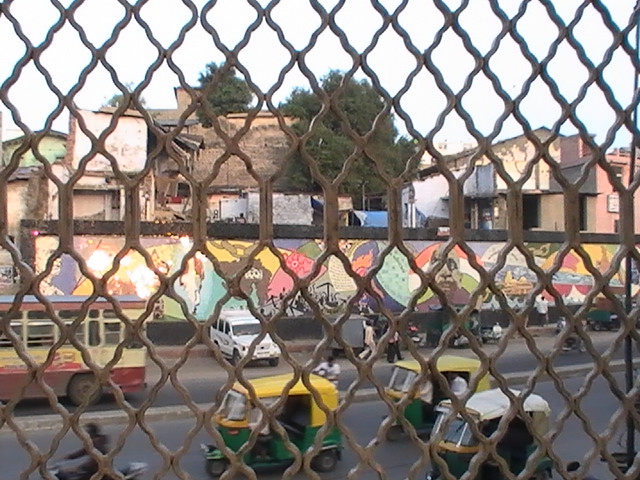By Kashif-ul-Huda, TwoCircles.net
Part 2 of TwoCircles.net series on Gujarat
Sultans of Gujarat ruled the region for over a period of 160 years but the marks that they left on the ground helped shape Gujarat for centuries to come. Gujarat was at its widest spread under the Sultans who governed a vast area which forms now part of Maharashtra, Madhya Pradesh, and Rajasthan. Gujarat as a state of Independent India was founded only on March 1, 1960 but its identity as a separate region with distinct language and culture was established under Gujarati sultans.
Laying the foundation of Ahmedabad in 1411, just a few months after Ahmed Shah was crowned, was not only a dream of a new regime to firmly establish itself on the ground but a plan for a new identity and new culture for a region that can declare its true independence from Delhi which was the power, religious, and cultural center of Muslim India.

In many ways, sultanate in Gujarat foreshadows the Mughal dyanasty. Like Mughal emperors, Sultans of Gujarat married Rajput princesses, helped create an environment of communal harmony, patronized art and culture to promote a common identity for their subjects.
The word Gujarat is a corrupted form of Gurjar Rashtra, a reference to its earliest inhabitants. The first mention of Gujari as a language is found in Amir Khurau’s Nuh Sipihr. But Gujarati as a language did not develop as a language till the fifteenth century.
Just like Urdu, Gujarati also developed as a language because of the effort of the preachers to reach out to common people.
The yokels who live in the wilderness
Will not understand without Gujari
I must make books thus
I must take on their speech so that they understand.
[Pir Mashaikh, a Gujari poet and Ismaili preacher]
But by 16th century it has developed into a literary language so much so that a Sufi poet says,
Like the speech
Flowing from my mouth:
Arabia and Iran join in it
To become one
The speech that flows
From the heart,
The speech of Arabia and Iran:
Listen, listen to the speech
Of Gujarat.
[Khub Muhammad Chishti (1539-1614)]
Since Gujaratis came into contact with Arabic and Persian speakers directly and even earlier than people of the rest of India, many Gujarati words are Arabic and Persian in origin. Over the years, the language has developed rules for incorporating these words into Gujarati. These words are so common and have been used for so long that native speakers of Gujaratis are not even aware of their foreign origin.
Gujarati sultans helped promote trade by setting up infrastructure and providing peace and security. Independence from Delhi raised the status of Gujarat and freed up resources for its development. Ahmed Shah not only started the establishment of a new capital but also he is the first one to set up navy in India for the protection of trading ships. Hindus were also given equal opportunities for employment, during Ahmed Shah I’s rule half of his army consisted of Hindus and some of the top posts in sultanate administration were filled by Hindu officials.
In fact, in the planning of cities, commercially advantageous central areas were given to Hindu and Jain merchants. V.S. Pramar in “A Study of some Indo-Muslim Towns in Gujarat” makes the observation that planning of city was also done taking into consideration Hindu and Jain traders practices of conducting business. So unlike Arabian land where concept of “suq” and market was well-established no such commercial structure came up in medieval Gujarat as Hindu and Jain traders conducted business from their home. Also, to further provide protection to traders, major towns in Gujarat were fortified in addition to having a citadel.
Gujarati sultans were way ahead of their time by building an administration to not only govern but develop a region. They established new urban centers but also helped promote agriculture by giving lands to soldiers as part of their salary tying them to the land and increasing agriculture output. Thus the foundation of Gujarat was laid that survived later Maratha and British rule and emerged as a state in independent India on May 1st, 1960.
[Poems from Samira Sheikh. Forging A Region : Sultans, Traders, and Pilgrims in Gujarat, 1200-1500. Oxford University Press, 2010]

